The 9 Worst, Most Exploitative Nerdy Crowdfunding Campaigns
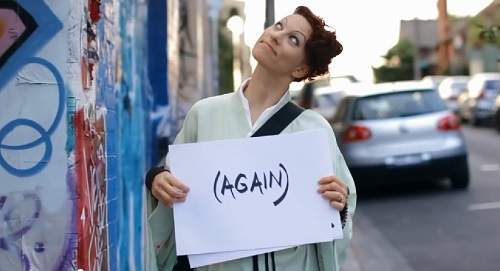 |
| Patreon |
Crowdfunding is a huge breakthrough for the arts and technology worlds. Done correctly, it enables artists to make something that would not otherwise exist. Creating is hard work, and making stuff for free with the hope that somewhere down the road you’ll be able to use it to do fun shit like “eat” or “pay rent” was an obstacle that left thousands of projects dead at the idea phase. Crowdfunding makes art into an entirely new experience for fans, too – it lets people get in early on the creative process and gives them a sense of ownership over that material, a beaming, proud sense of responsibility for the existence of that art. Crowdfunding is unquestionably a great tool and a benefit to the art and technology worlds.
Unfortunately, it’s also created an entirely new way to abuse customers. Kickstarter, Patreon, Indiegogo and the like have enabled an entirely new world of online grift: crowdfunding somebody’s whims, making money on both ends of a project, or in some cases, outright theft. Crowdfunding abuse typically falls into one of three categories: rich people who have the money to do what they’re asking people to fund, but run a Kickstarter to try and get someone else to cover their costs for the hell of it; campaigns with no forethought whatsoever, projects so ridiculous or so half-assed that they would have been laughed out of the room had their creators’ names not rhymed with seal nephenson; and corporations trying to figure out a way to make a profit off of the production phase of a project. Here are eight of the most egregious, most nerdsploitative crowdfunding campaigns.
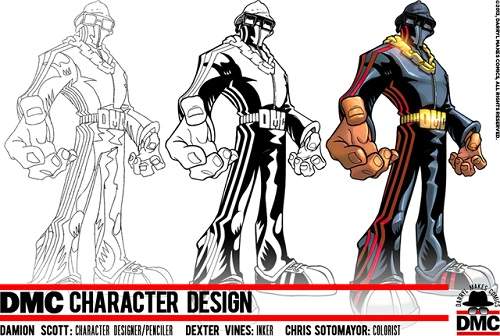 |
| Kickstarter |
It’s not really fair to lead with a Kickstarter that didn’t hit its goals, but Darryl Makes Comics was a great example of two of those points. DMC is one of the biggest names in the history of hip hop, and it’s hard to believe that Russell Simmons, one of the smartest guys in business anywhere, would have let his brother’s group get screwed to the point where one of them needed to beg for money to make a comic.
What’s far more likely is that DMC, a talented, astute guy in his own right, saw a bunch of OTHER people offloading risk onto the crowd, and decided “why not?” So he took his comic project, which was already underway and had some REALLY solid names attached already, including Ron Wimberly, Damion Scott and SAL FUCKING BUSCEMA (whaaat these guys are awesome) and threw together a laughably half-assed Kickstarter proposal – a $5 donation would have gotten you a firm “thanks,” while $10 got you a listing on their thank you page, which was never printed, but presumably would have been run in 3 point font, considering they were asking for $100 grand. But I’ll gladly take a Kickstarter that failed because of chintzy rewards over one that’s wildly successful, with the creator yelling “WHY ARE YOU GUYS BEING DICKS” at everyone asking him where his stuff is a year after it was supposed to ship.
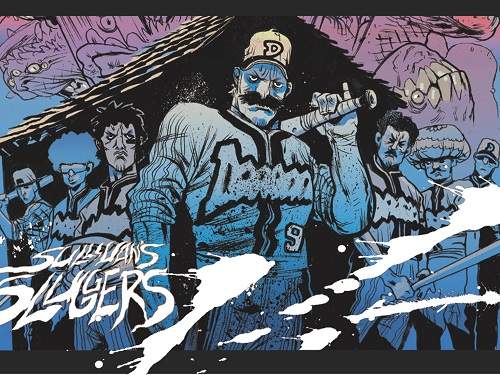 |
| Kickstarter |
Sullivan’s Sluggers was one of the earliest comic book kickstarters that really took off. Mark Andrew Smith, an Eisner and Harvey award-winning creator, pitched this baseball horror story with James Stokoe to the crowd. Based on his and Stokoe’s prior bodies of work and the absolutely amazing art, Smith managed to raise more than 15 times his initial goal, coming close to $100,000. That’s where everything went to shit.
The book was promised as an “exclusive” to backers, many of whom were surprised to see them on sale at comic shops and on Smith’s own web site months after the orders were supposed to have shipped to his funders. Smith claimed he was sending the books to shops in order to raise more money to cover a screw up he made when calculating international shipping costs. Smith’s stated goal was to sell through retail so he could fill all of the international orders from the campaign. Unfortunately (for him and for his customers), he made this claim while being an utter prick to those same upset backers. For a lot of people, this was the first real caveat emptor moment with a crowdfunding campaign, the first time that a really successful Kickstarter ended up so catastrophically botched that its failure became more of a story than its success. If your customer service motto is a drawing of a middle finger, it might be a good idea to minimize contact with customers.
3. Double Fine Adventure/Broken Age
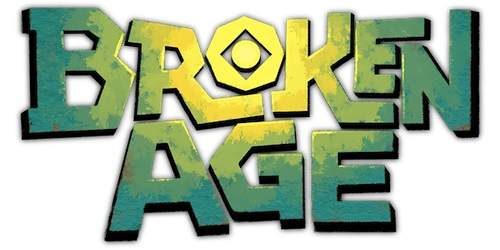 |
| Kickstarter |
“The world of video game design is a mysterious one,” says the lede for geek icon Tim Schafer’s studio’s adventure-game Kickstarter. Apparently, when you step out of the wardrobe into game developer Narnia, what you find hidden behind all of that mystery is a giant, bottomless pit surrounded by silos, each one blasting an endless stream of hundred dollar bills into the abyss.
“We raised ten times what we asked for and now we can’t afford to deliver” is a collection of words that, until about 2 years ago, made no logical sense in that order. But it’s a pitfall that a number of crowdfunding campaigns have run into, directly contradicting the concept of “economies of scale.” Schafer raised $3 million, so he felt obligated to make a $3 million game, instead of the $400,000 he promised. That led to INCREDIBLE delays, and the word “incredible” might be understating things a little – estimated delivery of the initial, finished game was set for October of 2012. It’s now April. Of 2015. The game is scheduled for release on April 28, 2015.
April 28, 2015. Just for reference, I have few friends who took less time to meet, court, wed and spawn.
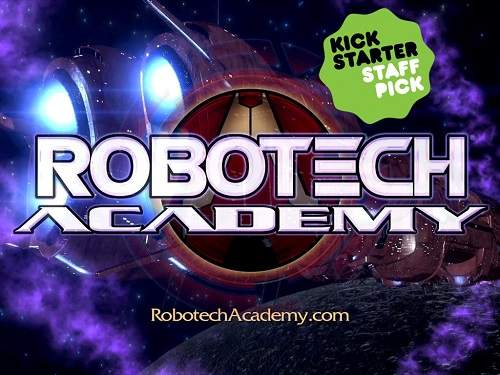 |
| Kickstarter |
Protip: when you hate your fans, as the owner of a licensed property, it might be a good idea to minimize your exposure to them.
Harmony Gold is one of the five leading IP trolls in the world, known for suing the bejeezus out of anyone who even thinks about drawing a mech suit, claiming that it infringes on their North American copyright for Robotech. Also, they’re known for sitting on the license for Robotech, crying poverty every time there’s a fan outcry for rereleases until a successful DVD issue about a few years back. Then last year, they pitched on Kickstarter the idea of a pilot for a new series: Robotech: Voyager Academy, where a group of new pilots gets stranded in the Delta Quadrant a strange area of space with a limited amount of dilithium protoculture, having to figure out a way to completely ruin the Borg home.
Their campaign failed because they underestimated how motivating “open contempt for your fanbase” is as a fundraising strategy. I’d be less inclined to subscribe to the fan hatred theory if they hadn’t used their Kickstarter as a way to troll Robotech fans. They called their $2 reward level the “Enemy Spy” tier, which would have given dedicated h8erz a chance to get regular updates so they could be INFORMED h8erz. Because as everyone knows, there’s nothing an Internet hate mob likes more than being intellectually accurate with their criticisms.
5. The Sarkeesian Effect
 |
The Sarkeesian Effect (besides being a medical term for an aneurysm suffered by an apoplectic neanderthal whose bathrobe just flew open on a Twitch livestream, laying bare his micropenis before tens of serial masturbators and one 11 year old Pokemon fan in the wrong place at the wrong time) is a documentary that was supposed to be made by a couple of racist, sexist stalkers daring to demonstrate…something…about Anita Sarkeesian…being a woman? Or maybe it’s about how Sarkeesian is wrong, and developers should be using imminent sexual violence as a threat amplifier MORE? Their point is kind of unclear. Mission creep was always a pretty significant problem for them.
I get that free speech means letting even assholes spout their stupid bullshit, but it doesn’t mean letting them use your crowdfunding tool to fund a campaign of harassment. Patreon and Kickstarter and the like should have rules in place preventing people from funding hate speech. But that’s not the only problem with this Patreon campaign. The Sarkeesian Effect exposed another giant pitfall in crowdfunding.
The project recently collapsed from creative differences HAHA j/k they all tried to steal from each other, like Snatch if everyone in it was a penny-ante dickhole. Almost-certain future unindicted co-conspirator Davis Aurini decided he was done with the project because of Jordan Owen’s flickering awareness of the hive of scum and villainy he was providing entertainment to. As a demonstration of his ethical bedrock, Aurini demanded half of the Patreon donations they’d accumulated to that point to keep his mouth shut about Owen’s potential apostasy. And now their patrons, who have donated approximately $60,000 to the project, are left with nothing to show for it. This is a HUGE problem with crowdfunding – there’s no accountability for failed projects after they’re funded, leaving people who have donated scads of their scarce, hard-earned money to causes that, regardless of their merit, they truly believe in screaming for attention while the “makers” take their cash and skip off into the sunset, and according to Patreon (it’s buried in legalese in Clause 2) and Kickstarter, you’re pretty shit out of luck if you want your money back.
6. Ivan Askwith
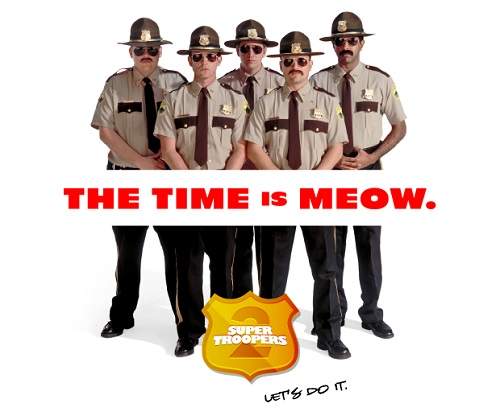 |
| Indiegogo |
“Askwith who?” you might say. “Askwith WHOM,” I would respond.
Low-hanging, terrible jokes aside, Ivan Askwith is a former VP of Digital Media at Lucasfilm who left to start his own company, which specializes in transferring costs from production studios (who used to pay to MAKE movies) to consumers (who used to only have to pay to SEE movies).
Besides symbolizing everything that’s bullshit about the tech industry, he’s also the guy who coordinated the crowdfunding campaigns for the Veronica Mars movie, and more recently for Super Troopers 2. That’s not really a “besides” comment- it’s more of an “also.” This represents the biggest problem with where crowdfunding is today: it’s no longer a place for individuals like artists and musicians or that one guy in his garage with an idea for an invention, to fund their stuff. It’s a place for the rich and for corporations to try and soak consumers on the front end, too, leaving nothing for them except pure profit. Seriously: look at this Wired piece on the Super Troopers 2 fundraiser. “The pledge that Askwith and Broken Lizard are most proud of is “The Fandango Bango,” which will allow fans to purchase tickets to see Super Troopers 2 in the theater – before pre-production has even begun.”
To translate into non-douchebag, what Askwith is most proud of about his campaign is the reward tier that represents the traditional exchange of money for services that has existed since the first silent film debuted in a movie theater a century ago. This is an innovation because prior crowdfunding campaigns he worked on had problems delivering the movie to people – a little quick math shows that the median donor to the Veronica Mars Kickstarter got only the digital copy of the movie, and they paid $35 for it at that. More than 25,000 people paid Warner Brothers to make a Veronica Mars movie, then had to pay a second time to go see it. And the $35-level donors had to deal with the studio’s bullshit proprietary streaming service to see it.
I’m reluctant to go after the Broken Lizard guys specifically for this, because they seem to recognize that this system is as unfair to their fans as the old one was to them, and they’re actually stumping for rule changes that let backers get equity in the film they fund. Askwith, on the other hand, is largely responsible for the innovation of “movie studios making a vig on the production budget” and has disrupted the contents of a hundred thousand pockets into movie studios’ bank accounts. That’s 40 cakes level messed up.
Oh and speaking of pure profit, Askwith is also the dude who privatized Reading Rainbow. So fuck him.
7. CLANG
 |
| Kickstarter |
I LOVE Anathem and Cryptonomicon. They’re two of my favorite books of all time. I wanted to get that out there first, because I just…this is going to need a blockquote from the KS page itself.
“Last year, Subutai Corporation delivered the CLANG prototype and the other donor rewards as promised. The prototype was technically innovative, but it wasn’t very fun to play. This is for various reasons. Some of these were beyond our control. Others are my responsibility in that I probably focused too much on historical accuracy and not enough on making it sufficiently fun to attract additional investment.”
There are a couple of reasons why Clang made this list encapsulated in this quote. There is the obvious foundational problem of not being able to create a complete product through the crowdfunding campaign – Kickstarter isn’t supposed to work like a venture seed fund. It’s supposed to help people create entire things. Then there’s the problematic concept behind the entire campaign.
The most realistic [two-handed long] sword fighting game ever sounds like as much fun as the most realistic wall-framing simulator ever. Look at how fluid the hammering is! And the amount of money and craft that went into creating realistic bubble level physics! “[In]sufficiently fun to attract additional investment” might be the most predictable outcome of this whole campaign.
8. Postal 2
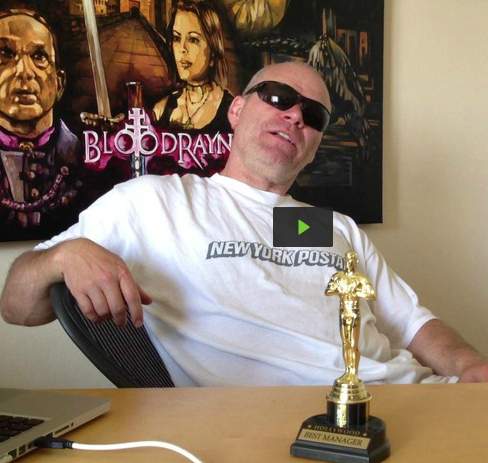 |
The Kickstarter for Postal 2 was the crowdfunding equivalent of a 419 email. There is nothing on this entire list that is a better argument for front-end quality control by the crowdfunding sites themselves than the fact that Uwe Boll thought it might be okay to ask people to give him money using one of them, and they let him. I can’t believe it didn’t cause an existential crisis for Kickstarter, with staff looking on in horror and somebody quoting the Bhagavad Gita.
Say what you will about these crowdfunding sites, but at least they’re committed to openness. Allowing this piece of garbage through is the crowdfunding equivalent of saying “I get that free speech means letting stupid assholes spout their stupid bullshit.” You have to really be clinging to an ideal there.
 |
| Click to infuri…enlarge |
Last month, Amanda Palmer, the former lead singer of the Dresden Dolls (and now professional moocher) did a Twitter takeover of Patreon’s account, where she addressed questions about her position on the bleeding edge of useless sloth with a glib throwaway line about how much she doesn’t have to pay her publicist anymore. For what I assume was her first “thing,” she posted a new song online, hammered the “MONEY PLEASE” button and was rewarded with $28 grand. For a song she already recorded. Without, I assume, crowdfunding support for studio time or musicians. And she felt cool with charging her supporters, on average, $7.50 each to listen to it. We’re really pushing the boundaries of goods and/or services, here.
Good for Ms. Palmer for figuring out how to set the market value for crap she already did in the five figures. Shame on Patreon, however: the creators of these sites completely miss the point of the crowdfunding revolution. The innovation they’ve helped foster ISN’T a tool that lets a lot of people contribute to a project. The innovation is the project that 10 years ago would have never seen the light of day.
Unless you want to take a really cynical view of the crowdfunding sites, in which case the innovation they’ve introduced is the ability to float the perceived value of a product, banking on the consumer having fixed point of comparison for the cost of what they’re purchasing. How else would you explain 30,000 people paying $7.50 for something that 2 websites down the information superhighway costs $0.99? Something that the creator just up and gave away for free right after charging backers? Or 11,000 people donating the price of two movie tickets to the Veronica Mars team, and in return they get a PDF of the shooting script and then they have to go buy two tickets to actually see the movie. We need to take a long, hard look at whether these sites are useful tools for promoting creative expression, or if they’re ways for the well-off to shed even more financial risk onto the backs of people who can barely afford it.
Every time Patreon or Kickstarter lets someone or something with the means to do their project on their own shake down regular people to cover their risk, those crowdfunding tools lose a little bit of public credibility and cost artists with no other funding options for their project a donation or two. The next time a rich person comes around shaking the crowdfunding can, asking you to fund their every whim, the only thing you should give them is the .0000000002 cents in data fees it costs to tweet “fuck off, buy your own goddamn paint.”
Previously by Jim Dandeneau
11 Valiant Comics We Want To See On The Big Screen
11 Things We Learned About Oni’s New Rick & Morty Comic From Zac Gorman
9 Cool Things About Frankenstein Underground> We Learned From Mike Mignola
The 26 Coolest Things at Toy Fair 2015
The 20 Best Comics of 2014
10 Things We Learned from Scott Snyder about Wytches
Topless Robot’s 2014 Holiday Gift Guide – Comics
12 Other Events Marvel Should Revisit for Secret Wars
The 14 Biggest Highlights from NY Comic Con 2014
4 Reasons Why We Shouldn’t (And 4 Why We Should) Get Excited About the Kirby Settlement
The 7 Best Ways to Clear Up Comics Continuity Errors
